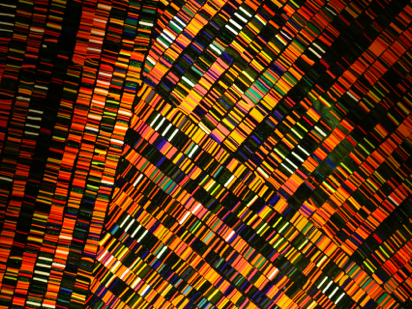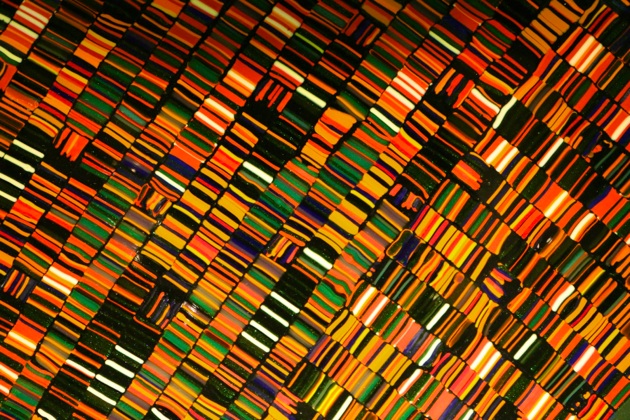
–
I read recently something written by Edward A. Kimball in 1909 originally published in the Bloomington Illinois Daily Bulletin newspaper titled “Answers to Questions Concerning Christian Science.” One of the major questions he answers is: What are the fundamental points of difference between Christian Scientists and other Christians? Here is the first part of his answer:
“‘Suppose a man says to you, I believe that God is infinite.’ And you, perhaps reaching out beyond the limitation of the testimony of the material senses, allowing your thoughts to rest on those things that are not within the reach of the eyes, nose, and mouth, lay hold somewhat upon the meaning of this word ‘infinite.’ You know that that which is infinite must be self-existent and all-inclusive; it must contain all the elements of continuance or immortality; it must be unlimited; there can be nothing unlike itself or that is not included in itself. And as you begin to take on the wonderful signification of the word, you turn to him and say, ‘So do I.’ And all the time you are thinking of infinite intelligence, of the all-inclusiveness of God, infinite wisdom. Then he says, ‘I believe in the omnipotence of God.’ And as you realize that there is no power without intelligence, and that which is omni-intelligence or omni-science must also include all power; when you realize that the infinite cannot be anything less than infinite, and that it is the omnipotence of the omnipotent that you are thinking about, you again say to him, ‘So do I.’
Then he says to you, ‘I believe in the power of evil. I believe that there is an entity called Satan, possessing all the characteristics of immortality, possessing power akin to the divine power and the ability to hold mankind in eternal punishment, power to drag man down from the image and likeness of God to perdition.’ And when you see that this man who is trying to believe in the omnipotence of God lays a great deal more stress on the power of evil; when you find that he believes in an eternal entity and intelligence opposed to the infinite God, then you see and know that the man does not believe in the first two propositions at all. It makes no difference how a man tries to persuade himself that he believes in an infinite omnipotent God, if at the same time he is trying to believe in a devil or power opposed to this infinite. All the sophistry he can bring to bear upon the subject cannot outweigh the utter falsity and futility of the effort and the conclusion.
It is said that there are about one hundred forty different Christian sects; nevertheless, it would be perhaps indelicate for me to stand up here and say what other people’s beliefs are concerning God and man, and their relationship to each other concerning the question of the Messiahship, of future punishment, man’s duty and so on. It is not for me to say what you and others believe, nor is it worthwhile for me to discuss the beliefs of different denominations, but we will take up what I suppose to be the intent of this inquiry, and put it a little differently from the way in which it has been stated.
‘In what respect is Christian Science different from all other Christian beliefs?’ I can perhaps with profit speak of two special differences. One is this: Christian Scientists do believe that God is infinite; that God is infinite good, infinite Truth, infinite Life, infinite Love, infinite wisdom, infinite intelligence, and that “there is none beside him.” That being the case, we have to account for evil in some other way than by calling it a power opposed to God, or an evidence of the manifestation of intelligence and wisdom. Christian Scientists believe emphatically and throughly that if God is good at all, He must be infinitely good; if God is Truth at all, He must be infinite Truth and all truth must be good; if God is intelligence at all, He must be infinite intelligence, and, therefore, all intelligence must be good; and that which calls itself evil intelligence and evil power is not of God, is not included in the infinite, is not made use of by the infinite, but entirely apart and separate from it. It is utterly impossible to think of God as infinite good and then incorporate within that an entity called Satan or spirit of evil.
How do Christian Scientists account for evil? We find it to be this: that the only Satan there is, is a false concept of being, or what has been termed the carnal mind. Just as soon as men absolutely stop sinning, there will be no witness of sin, there will be no witness of a devil; there will be no sin known; and in order to get rid of sin, the only way to do it is to stop sinning. Mortal man has contemplated this thing we call evil so long, and sin itself has seemed to exercise such a bondage over him, that he he has seemed to be obliged to account for it in some way. He has looked upon it as something supernatural; something from which he could not escape; and that horrible sense of the power of evil has hung upon him and mildewed him; its chains have deprived him of the dominion he has over the claim of evil power. What is there more paralyzing to a man’s endeavors than to suppose that there is opposed to him a mysterious power – a supernatural agency with which he is unable to cope; which in spite of his every effort may drag him down to infinite punishment for the finite sin he has committed.
The question arises: ‘What is the Christian Scientist trying to do to resist Satan?’ He is trying to cast evil out of his own thought, from his own life, from his own experience; the only way he knows of whereby to resist evil is to do that, and he does it rationally, with the understanding that when he has accomplished that he has overcome the devil in himself. What has been the scene of his strife? Is it not that of his own experience, of his own thought, of his own tendency? When he sees that he has overcome Satan, if we ask what has been the theater of the action, and he answers truly, he will say that it has been his own consciousness…”
With so many horrible accounts in the news these days, I found this article worth considering. Is evil a power, or is God, omnipotent good, the only power and reigning supreme? And I loved the focus directing us to each one’s own sphere of influence: each one of us can cast evil out of our own consciousnesses. We can persist in this and help it spread until not one person is left on this beautiful planet that would imagine or perpetuate evil.
–

1 Comment
-
YES! We *can* prove that evil is not real right this very minute, and anything unlike God in Genesis 1 is only suppositional mortal belief, where it can be handled. How?
A little obverse logic: If evil was actually a reality, then God would be flawed – a myth – and with us having no creator, we would not be conscious enough (non-existent) to read this post and ponder the question in the first place!
Still reading? There’s your proof.






